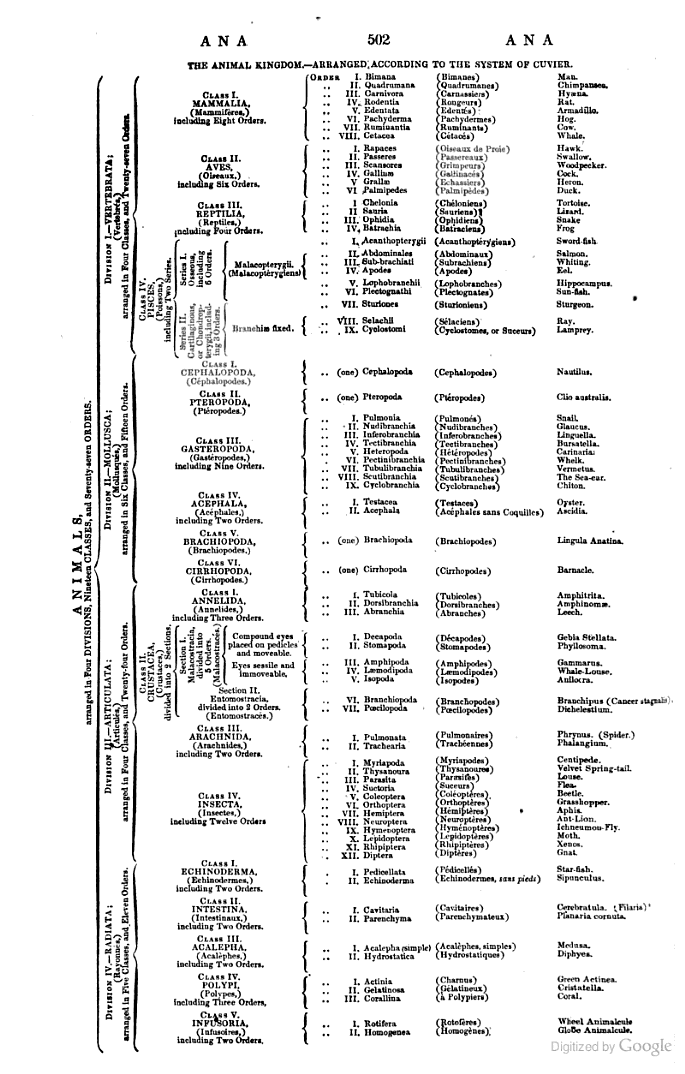Penny Cyclopædia on:
[Wikipedia]
[Google]
[Amazon]
 ''The Penny Cyclopædia'' published by the
''The Penny Cyclopædia'' published by the
The Penny cyclopædia of the Society for the Diffusion of Useful Knowledge
' London : C. Knight, 1833-1843. Original 27 vol. ed. *
The Supplement to the Penny cyclopædia of the Society for the Diffusion of Useful Knowledge.
' London : C. Knight, 1846-1851. *
Penny cyclopaedia of the Society for the diffusion of useful knowledge. Supplement.
' London, C. Knight, 1851. *
Penny cyclopaedia of the Society for the diffusion of useful knowledge. Second supplement.
' London, Knight & co., 1858. *
The national cyclopaedia of useful knowledge.
' Boston : Little, Brown & Co., 1853. {{Italic title Publications established in 1833 1833 non-fiction books British encyclopedias English-language encyclopedias 19th-century encyclopedias
 ''The Penny Cyclopædia'' published by the
''The Penny Cyclopædia'' published by the Society for the Diffusion of Useful Knowledge
The Society for the Diffusion of Useful Knowledge (SDUK) was founded in London in 1826, mainly at the instigation of Whig MP Henry Brougham, with the object of publishing information to people who were unable to obtain formal teaching or who pr ...
was a multi-volume encyclopedia edited by George Long and published by Charles Knight alongside the ''Penny Magazine
''The Penny Magazine'' was an illustrated British magazine aimed at the working class, published every Saturday from 31 March 1832 to 31 October 1845. Charles Knight created it for the Society for the Diffusion of Useful Knowledge in response t ...
''. Twenty-seven volumes and three supplements were published from 1833 to 1843.
Editions
The ''Penny Cyclopædia'' was originally published in 27 thin volumes between 1833 and 1843. Supplements were issued in 1851 and 1858. Despite its name, each individual volume cost 9d. apiece.Contributors
The contributors to the ''Penny Cyclopædia'' were not individually credited with the articles they created, although a list of their names appears in volume 27. The contributors included many notable figures of the period, including the librarianHenry Ellis Henry Ellis may refer to:
* Henry Augustus Ellis (1861–1939), Irish Australian physician and federalist
* Henry Ellis (diplomat) (1788–1855), British diplomat
* Henry Ellis (governor) (1721–1806), explorer, author, and second colonial Govern ...
, the biblical scholar John Kitto, the publisher Charles Knight, the critic George Henry Lewes, the mathematician Augustus De Morgan, the surgeon James Paget
Sir James Paget, 1st Baronet FRS HFRSE (11 January 1814 – 30 December 1899) (, rhymes with "gadget") was an English surgeon and pathologist who is best remembered for naming Paget's disease and who is considered, together with Rudolf Virc ...
, the statistician George Richardson Porter, the sanitary reformer Thomas Southwood Smith, and the art historian Ralph Nicholson Wornum.
Derivatives
A number of mid-to late 19th century encyclopedia were published based on the ''Penny Cyclopaedia''''National Cyclopedia of Useful Knowledge''
The ''National Cyclopedia of Useful Knowledge'' was published by Charles Knight in 12 volumes between 1847 and 1851. A second edition in 13 volumes was published between 1856 and 1859 byGeorge Routledge
George Routledge (23 September 1812 – 13 December 1888) was a British book publisher and the founder of the publishing house Routledge.
Early life
He was born in Brampton, Cumberland on 23 September 1812.
Career
Routledge gained his early ex ...
. The work was then sold to the firm of W. Mackenzie who published it as the ''National Encyclopedia'' in 14 volumes in 1867, the final volume of which was a world atlas. Further editions of the ''National Cyclopedia'' were published in 1875 and in 1884-8. The last was a "revised" edition edited by J. H. F. Brabner.
There was also apparently an American edition of the ''National Cyclopedia of Useful Knowledge''
''English Cyclopaedia''
The most famous of the derivatives of the ''Penny Cyclopaedia'' was the ''English Cyclopaedia'', which would go on to form the basis of '' Everyman's Encyclopaedia''.''Imperial Cyclopedia''
This was a two volume condensation of the ''Penny Cyclopaedia'' specifically regarding theBritish Empire
The British Empire was composed of the dominions, colonies, protectorates, mandates, and other territories ruled or administered by the United Kingdom and its predecessor states. It began with the overseas possessions and trading posts esta ...
, published 1850-51.
Influence
The novelistHerman Melville
Herman Melville ( born Melvill; August 1, 1819 – September 28, 1891) was an American novelist, short story writer, and poet of the American Renaissance period. Among his best-known works are ''Moby-Dick'' (1851); ''Typee'' (1846), a r ...
is known to have used the ''Penny Cyclopædia'' while writing '' Moby-Dick'' (1851) and other novels, and scholar Paul McCarthy has suggested that the encyclopedia's coverage of moral insanity and monomania may have influenced Melville's characters in ''Moby-Dick'' and other writings.
Volumes
Vol. 1. A-And—Vol. 2. And-Ath—Vol. 3. Ath-Bas—Vol. 4. Bas-Blo—Vol. 5. Blo-Buf—Vol. 6. Buf-Cha—Vol. 7. Cha-Cop—Vol. 8. Cop-Dio—Vol. 9. Dio-Ern—Vol. 10. Ern-Fru—Vol. 11. Fue-Had—Vol. 12. Had-Int—Vol. 13. Int-Lim—Vol. 14. Lim-Mas—Vol. 15. Mas-Mur—Vol. 16. Murillo—Organ (1840)—Vol. 17. Org-Per—Vol. 18. Per-Pri—Vol. 19. Pri-Ric—Vol. 20. Ric-Sca—Vol. 21. Sca-Sig—Vol. 22. Sig-Ste—Vol. 23. Ste-Tai—Vol. 24. Tai-Tit—Vol. 25. Tit-Ung—Vol. 26. Ung-Wal—Vol. 27. Wal-ZygReferences
External links
*The Penny cyclopædia of the Society for the Diffusion of Useful Knowledge
' London : C. Knight, 1833-1843. Original 27 vol. ed. *
The Supplement to the Penny cyclopædia of the Society for the Diffusion of Useful Knowledge.
' London : C. Knight, 1846-1851. *
Penny cyclopaedia of the Society for the diffusion of useful knowledge. Supplement.
' London, C. Knight, 1851. *
Penny cyclopaedia of the Society for the diffusion of useful knowledge. Second supplement.
' London, Knight & co., 1858. *
The national cyclopaedia of useful knowledge.
' Boston : Little, Brown & Co., 1853. {{Italic title Publications established in 1833 1833 non-fiction books British encyclopedias English-language encyclopedias 19th-century encyclopedias